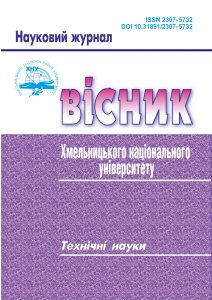LINGUISTIC ANALYSIS OF THE INFORMATION CONTENT FORMATION FOR VIRTUAL COMMUNITIES OF DEMAND AND SUPPLY OF EDUCATIONAL SERVICES
DOI:
https://doi.org/10.31891/2307-5732-2023-325-5-246-251Keywords:
linguistic analysis, motivational intentions, motivational markers, educational services, virtual communityAbstract
Specialized virtual communities are an effective platform for fulfilling the information needs of participants in educational activities. The information content of the virtual community of supply and demand of educational services is formed on the basis of the motivational intentions of its members who post messages in this community. The publication of thematic posts in the relevant section of the virtual community reflects the motivational intentions of its members. Users of the virtual community of supply and demand of educational services can both search for information about the course they need and offer their educational services. That is why the study distinguishes such participants of the virtual community as a Student and a Teacher. The article identifies the main motivation of the author of the post by means of lexical, syntactic and stylistic characteristics of the content. The study proposes a formal description of the motivational intentions of the users as Student and Teacher based on their motivational needs.
Based on the linguistic analysis, the motivational needs of the user as Student are identified as the need for information search and the need to share experiences. And for the user as Teacher, the motivational needs are the need to offer their own educational services and the need for recognition of their skills. Identification of motivational intentions in the posts of participants in the web community of supply and demand of educational services is also the subject of this paper. Thus, the current task is to conduct a computer-linguistic analysis of the peculiarities of forming the information content of the virtual community of supply and demand of educational services, which is created by its motivated users. The results of the study are applied and can be used to predict the behavior and information content of its participants.

